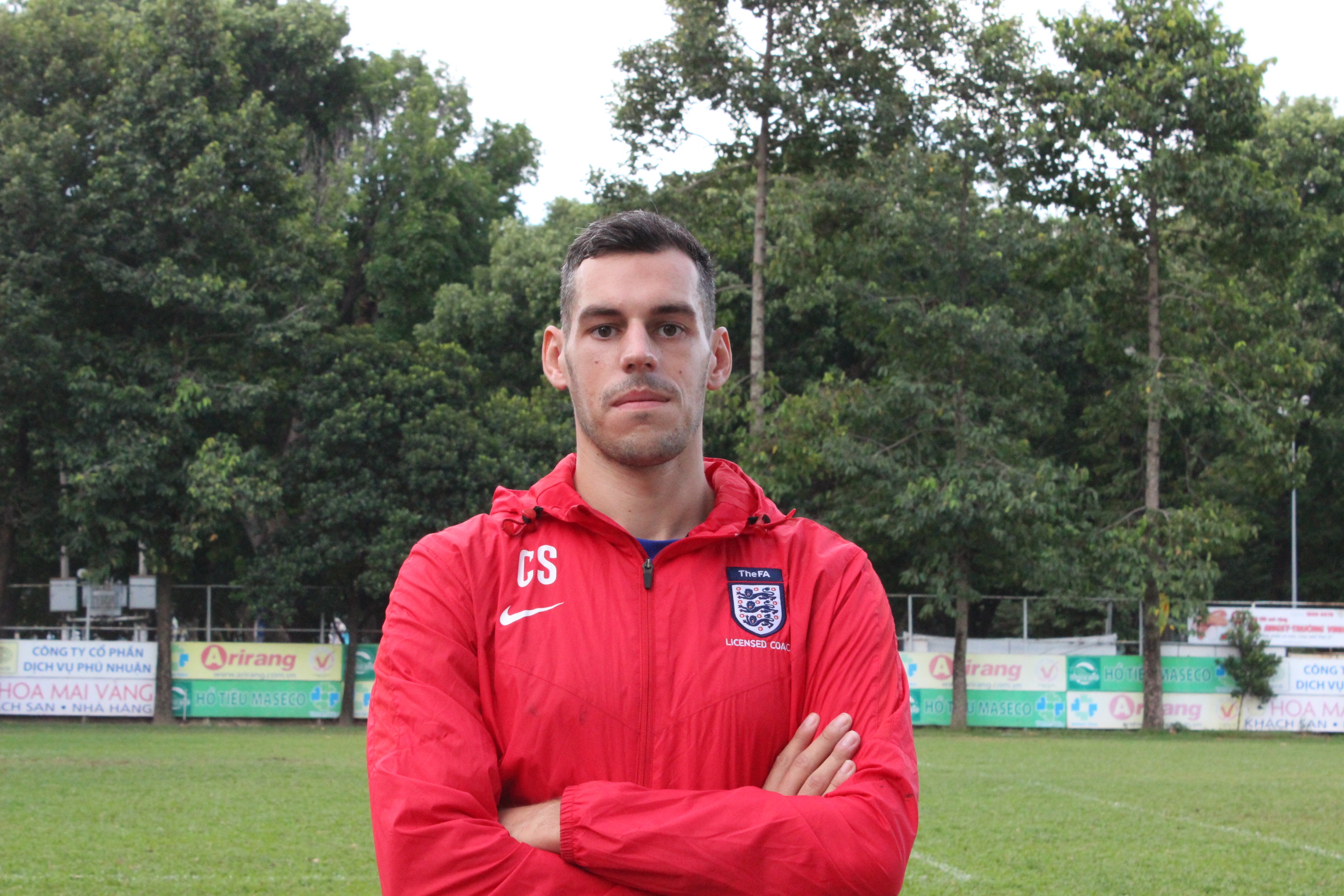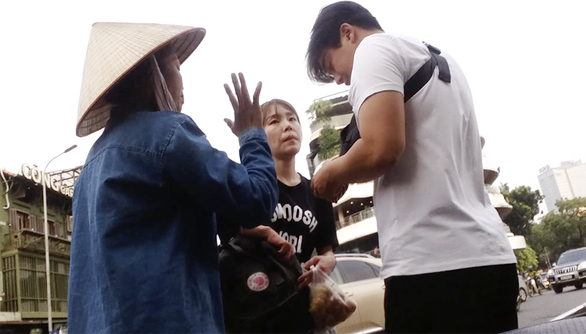A number of tourists and expats living in Vietnam have expressed their opinions on ripping off in Vietnam and suggestions on how to stop the act.
The comments were made under a request of Tuoi Tre News, after a series of exposé of broad daylight robbery targeted at foreigners near iconic Hoan Kiem Lake in Hanoi.
The scam artists forced tourists to buy or use poor products and services at exorbitant prices. For instance, a tourist was forced to pay 400,000 VND (US$17) to have his shoes polished without his approval. In fact, the shoes were almost pulled off of his feet.
Only affecting tourists not expats
I think it is because tourists do not understand the culture enough and have little understanding of the currency so become easy targets. Most of my experience has been people being overly pushy with their services or following you around for an extended period of time, which often turns in to a very awkward and unhappy experience.
Once I needed my shoes fixed and used a man on the street. He tried to hugely overcharge me, but thankfully I’d been in Vietnam long enough so I knew to hold my ground and negotiate prices in Vietnamese, so it ended up being a bit more acceptable. However, I had to make it clear that unless he was fair, I was willing to walk off without paying anything. I had similar experiences in India where sales people were overly pushy, and it seems to pop up in tourist hotspots.
It’s often a symptom of the division between rich and poor, often in tourist area of developing countries many people are trying to make a living through whatever means necessary, with very little access to government intervention. I can understand the mindset of taking advantage of wealthy foreigners coming to your city. The pushiness may simply be desperation.
As such a well-loved tourist destination, I would like to see better access to tourist police to report incidents. Maybe even licensing within certain areas such as around Hoan Kiem Lake and the old quarter of Hanoi. I would like to see other people in the tourist industry, such as hotel staff, take the lead and warn visitors of the dangers. For example, when I was visiting Manila in the Philippines, almost every stranger or staff I met took it upon themselves to warn me of the dangers of the city.
(Chris Smith from England)
 |
| Supplied photo of Chris Smith |
Only happens outside of daily context
As an expat I was overcharged two to three times within the last five years living in Vietnam, but it all happened outside of my daily context, which can also happen to any Vietnamese. For instance, I had a flat tire far from my house in an area I was unfamiliar with.
However, I would say neither paying unimaginably high prices for service, nor paying for services against my will happens to me. Even if I ask my expat friends or screen the expat groups on Facebook and social media, it is true that foreigners sometimes have to pay higher prices for some services including rent and food, among others, but it is a part of an inevitable learning process of expats.
Regarding the case in Hanoi, the main targets are the tourists and not the expats as the tourists are unfamiliar with local customs and may naturally restrain their reaction for this reason. However, we cannot call this “robbery” as a real robbery case would resemble the gangs in Paris who chase the Asian tourists because they know these people carry a lot of cash.
Social media have a huge impact on tourism in Vietnam, as well as the world. Countries, cities, and hotels depend on social media to attract the tourists while their reputation is too easily affected by this channel where even the minor and small-scale events might be emphasized and exaggerated. This is made worse by the fact that tourists stay for few days or only a few weeks but their experience represents the whole image of Vietnam. Hence, they will easily bring back bad memories and consider the trip a bad experience if they come across unfavorable situations. This negative impression will be shared and will become Vietnam’s image of many people instead of truly understanding the smile and the kindness we, as expats, experience in Vietnam.
(Christopher Denis-Delacour from France)
Punishment must be hard enough
Cheating and extorting are pretty common all over the world. They prey on tourists who are afraid to fight back. The difference is only in the prevalence of the crime in each respective country. Some countries have good government which clamp down hard on these criminals while others are too lax.
In every society, there are a small percentage of people who would choose the easy way to make money by cheating and robbing others. This is a universal nature of men. It is not particular to Vietnam.
My country is not excluded. There are taxi drivers who cheat tourists by taking them for long rides or by quoting unfair prices. A good case of cheating was one committed on a Vietnamese man in 2014. The Vietnamese man was cheated when trying to buy an iPhone. The case was reported to CASE (Consumer Association of Singapore), an organization that helps to protect consumers from unscrupulous sellers. Normally the problem would be resolved by CASE with the seller but because the iPhone cheating case was serious and that the shop has past records of cheating, the authority stepped in and the shop salesmen and owner were jailed.
To prevent all crimes, the authorities must be serious with the problem and firm actions must be taken to bring the criminals to justice. The punishment must be hard enough to bring the message across to others that crime does not pay.
(John Lim from Singapore)
Be aware
It happened to me once on Phu Quoc and at Hoan Kiem Lake in Hanoi. These guys try to take the shoes from your feet for unnecessary repair. I was out shopping for new shoes on morning as my old shoes were ready for the rubbish. One guy took them from my feet and wanted to glue on new soles. He was very persistent so I laughed and told him he could keep the shoes. I walked off bare foot which is no problem for an Aussie and bought new shoes. Within a few minutes, another guy was also trying to get me to take them off for him as he wanted to do repairs. I told him “no, thank you” and proceeded on my way with a good laugh and a smile on my face. They may follow for a while but when you stand your ground and be stern with them, they get the message and leave you alone.
For the unsuspecting foreigners I guess this could upset them if they do not know the way of these operators. I understand this happens in most countries. Be aware is the best solution for all countries. I am sure some foreigners are ripped off in Australia and other countries in one way or another but the shoe business was the best I had ever seen.
Policing these unfair traders is the best and only solution as long as the public are not afraid to come forward and make the problem noticed by the authorities.
(Darren Spackman from Australia)
Better supervision thanks to social media
I am well aware that Vietnam is not only country that is facing such problem. Similar ways to deceive foreign visitors have been existent in Thailand many years ago. However, thanks to the authority’s approach and severe punishments, this problem was for most parts avoided for the last 20 years.
In Thailand, social media are very popular and have become a good way to keep an eye on the society with tourism services not being an exception. When such actions are found within the society, they are guaranteed to be uploaded and condemned on social media. That way, police, authorities, and customer control department will be acknowledged and take necessary measures to deal with the problem. More importantly, by this means people will be aware of the current situation and what kind of fraud there is so as to protect themselves.
Despite this advantage, social media make it too simple to frame service suppliers that do not deserve it. Moreover, as these networks are popular around the world, many foreigners might have a bad impression of the countries without actually getting to know them.
Immediate solution to all problems in the society remains severe fines and punishments. In Thailand we also have a group of people only investigating and making sure the regulations are being practiced.
(Jo Jeerachart from Thailand)


















































